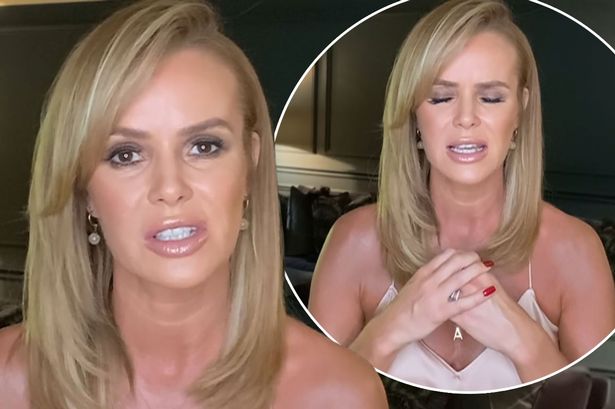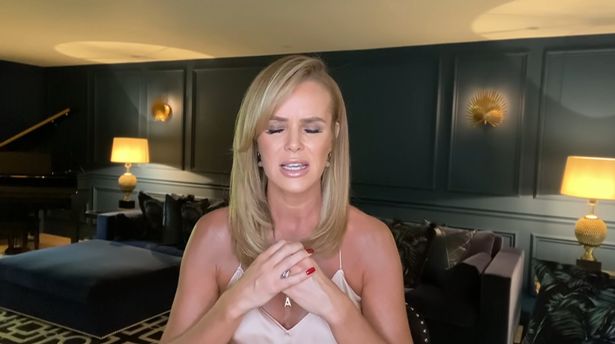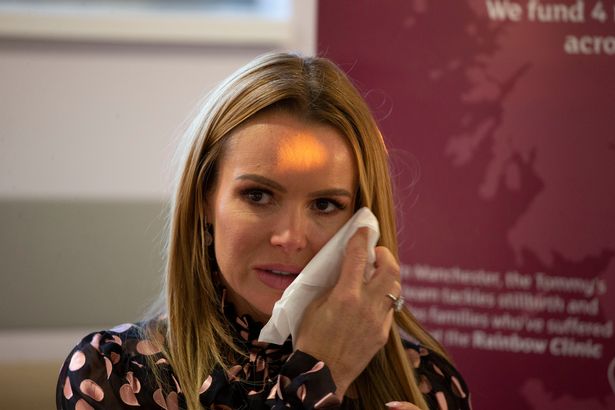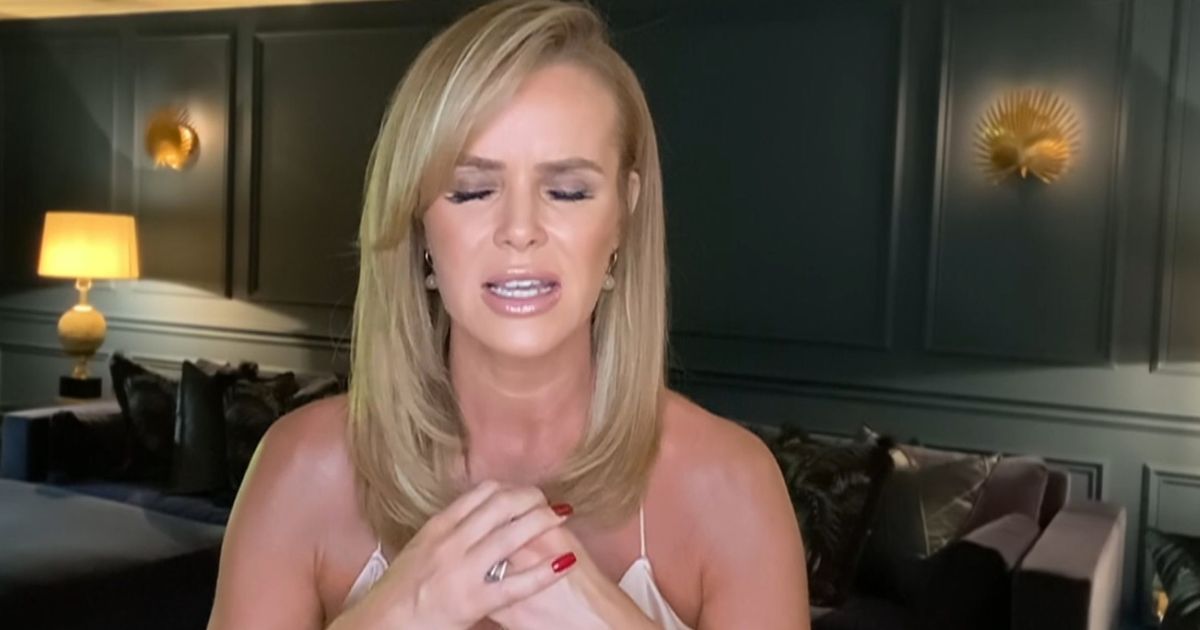Amanda Holden overwhelmed as male listener shares poignant battle with breast cancer
On her Heart Breakfast radio show today, Amanda Holden was left speechless after a brave listener opened up about his breast cancer diagnosis

Amanda Holden and Jamie Theakston were left overwhelmed after a Heart listener called in to detail his poignant journey with breast cancer.
During Friday’s installment of Heart Breakfast, the duo became speechless when the brave listener explained how he had been diagnosed with the disease, which is more comment in women but also affects men.
Breast cancer is often thought of as something that only affects females, but the listener explained that men can also get it in rare cases.
It grows in the small amount of breast tissue men have behind their nipples – which is exactly where he discovered the lump.
While lying in bed with his girlfriend, he found an uncomfortable lump in one of his nipples.

In a bid to not make a big deal of the matter, he ensured his girlfriend that it was nothing serious.
Despite attempting to calm her down, the brave young man told that his beloved lady ran straight to get her phone and booked him an appointment then and there.
As it turns out, the caller had been suffering with breast cancer although he wasn’t experiencing any symptoms or sickness at the time.

After catching it early and getting the treatment he needed to fully recover, the cancer survivor is now on a mission to spread awareness for male breast cancer.
Stunned by his inspiring story, both Amanda and Jamie admitted that they had no idea that men could be affected by that specific type of cancer.
“Wow, I honestly never would have thought that men could be effected by this,” Amanda admitted.

“Thank you for telling your story, and for raising awareness for such an undocumented strain of cancer.”
Breast cancer in males usually happens in men over 60, but can very occasionally affect younger men.
The brave caller was in his twenties when he was first diagnosed.
MirrorCeleb
More On
